By Sharon Wilson | Published Thursday, December 18, 2008
"Drilling the Barnet Shale for natural gas is responsible for most of the smog in North Central Texas, according to a new peer-reviewed study—in an area that violates the Clean Air Act with air that is too dirty to breathe. Currently, there are nearly 10,000 functioning gas wells in the Barnett Shale, with thousands more holding permits from the Texas Railroad Commission.
Research by Dr. Al Armendariz, an engineering professor at Southern Methodist University, found that emissions from gas drilling activities cause twice the ozone-forming pollution as the area’s automobiles. His projection for 2009 shows that emissions from Barnett Shale drilling will be a whopping 200 percent higher than emissions from all motor vehicles and area airports combined.
When nitrogen oxides and volatile organic compounds—chemicals such as benzene and formaldehyde—are combined with sunlight, they transform into choking ground-level ozone or smog. Smog poses serious health consequences particularly for children and the elderly, triggering asthma, heart attacks and causing lung damage.
Until Tuesday, Wise County was facing inclusion on the so called “non-attainment list” for failure to meet federal air-quality standards. Wise County ranks second among the nine counties on the list for emissions of nitrogen oxide, according to Texas Commission on Environmental Quality (TCEQ). The Environmental Protection Agency has the ultimate say regarding who is included on the list, but the commission removed its recommendation to include Wise County.
Counties on the non-attainment list are required to adopt mandatory and costly pollution-cutting measures. Kevin Burns, Wise County Commissioner for Precinct 2, says Wise County can’t afford to be on the non-attainment list—and Gilbert Horton, public relations executive for Devon Energy agrees. The tougher regulations would cost his company $60 million.
I agree with Burns. Wise County can’t afford to be on that list! Wise County may have dodged the bullet this time, but we need to get ahead of the curve now to avoid that firing squad next time.
Every day, I drive by drilling rigs belching thick, black exhaust and compressor stations spewing never-ending vapor plumes. This week I watched three different wells where frac units sent copious amounts of smoke boiling into the air, non-stop for several days and nights. The venting and flaring of gas wells releases as many as 250 toxins. Flare smoke emits dangerous particulate matter including carcinogenic substances and causes acid rain which corrodes roofs, acidifies lakes and streams and damages vegetation. Invisible vapors called “fugitives” leak from pipelines and tanks. Over time the beautiful rolling hills of Wise County have become cloaked in a smoky veil and citizens face increasing health problems that include: asthma, cancer, neurological damage, coronary problems, endocrine disruption and headaches.
Some of the polluted air may blow our way from Denton and Tarrant Counties as suggested by Burns, but Wise County is among the top ten gas producing counties in Texas.
We would do well to heed the lessons learned in the tiny town of Boulder, Wyoming, population 75. In the nation’s least populated state, in a tiny town, the booming natural gas industry has polluted the air to levels so high that ozone warnings have become a regular occurrence. Now residents and industry are spending millions trying to stay off the non-attainment list.
Last quarter, Devon Energy’s cash flow grew 49 percent, according to a Reuter’s article, with net profits of $2.62 billion dollars. If Devon spent Horton’s estimated $60 million to cut pollution, Wise County would have cleaner air—and Devon would still show a net profit of $2.56 billion for that three-month period.
Clearly, Devon can afford to and has a responsibility to minimize impacts on air quality and protect public health. Armendariz’s study found that win-win solutions are possible. “Cost effective control strategies are readily available that can substantially reduce emissions, and in some cases, reduce costs for oil and gas operators,” he wrote.
Other states have done a much better job of regulating the oil and gas industries. New Mexico now requires emissions reporting and recently outlawed the use of sludge pits, dangerous ponds where drilling companies dump toxic drilling waste. There are hundreds of these same sludge pits in Wise County.
The Texas Railroad Commission is responsible for regulating drilling waste but they are extremely lax in their oversight. Pits in rural counties often sit untouched for years past the 120 day limit mandated by state law. This toxic soup is left to evaporate chemicals into our air, leach into our soil and overflow into our watersheds.
Colorado will soon require emission controls and closed loop drilling systems. Some producers find they can break even with the cost of new regulations by selling the captured emissions.
Municipalities in Wise County have some control over oil and gas activities if they have a city drilling ordinance. The mayor of Dish, Texas is circulating a resolution asking the Texas Legislature for more local control over pipeline placement. Thirty Texas cities have signed his resolution, but so far, Bridgeport is the only Wise County city to adopt the resolution.
Unincorporated areas have less control and are left at the mercy of inadequate state regulations and a regulating agency plagued with conflict of interest issues. Texas needs better industry regulations and commissioners should adopt resolutions for expanded local control over oil and gas activities. The use of pits should be outlawed completely. Without legislation, it is up to mineral owners to make sure their leases restrict the use of pits and have clauses that protect the environment.
Horton claims that Devon is “passionate” about clean air. Okay, Devon: Here is your opportunity to prove it. Spend that $60 million—2 percent of your last quarter’s profits—and help Wise County stay off non-attainment list."
Sharon Wilson lives in north Wise County and writes about oil and gas related issues on her blog, txsharon.blogspot.com .

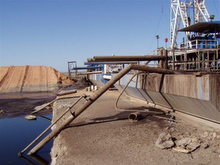



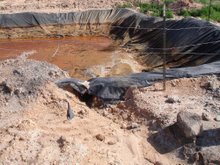

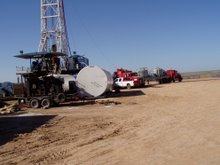
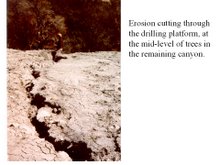
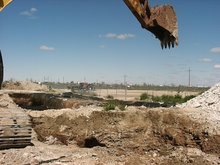


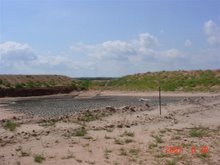
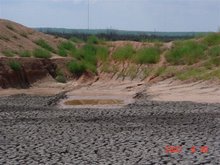
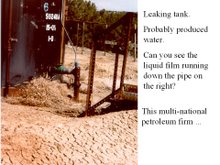
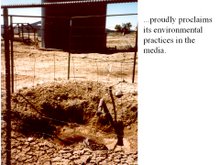
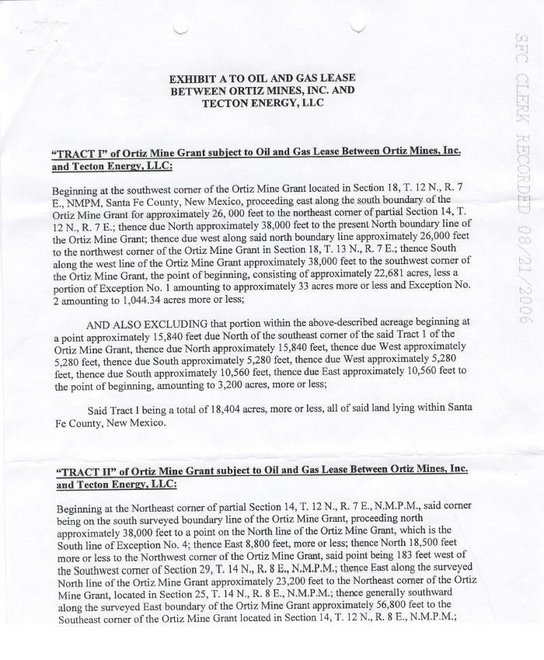
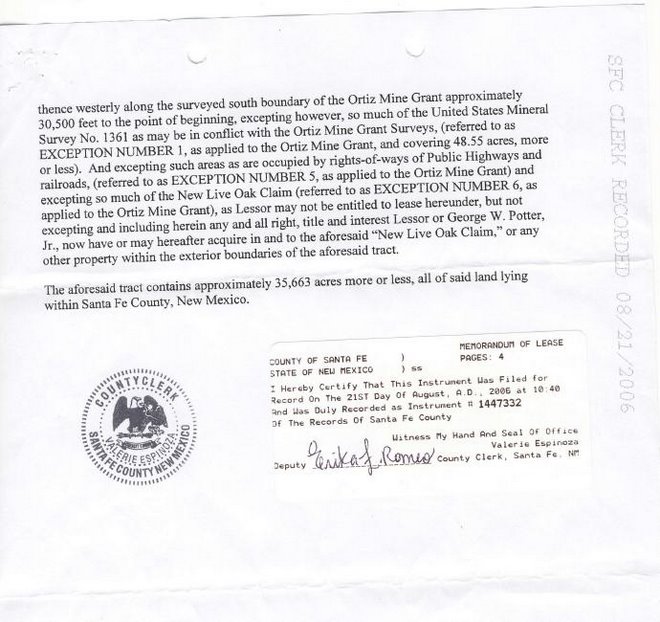


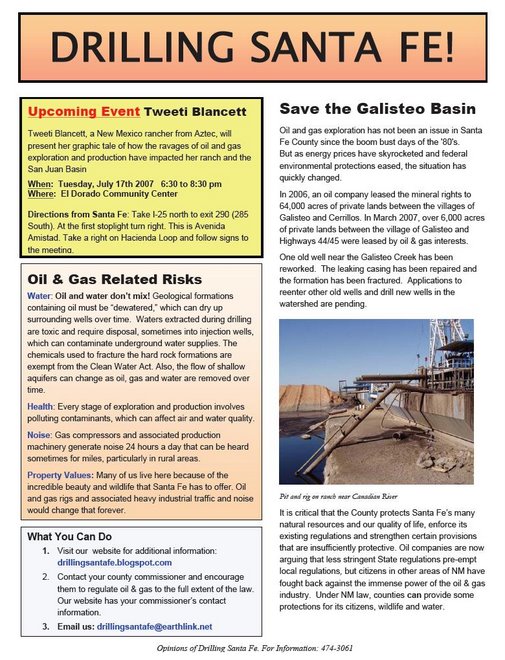
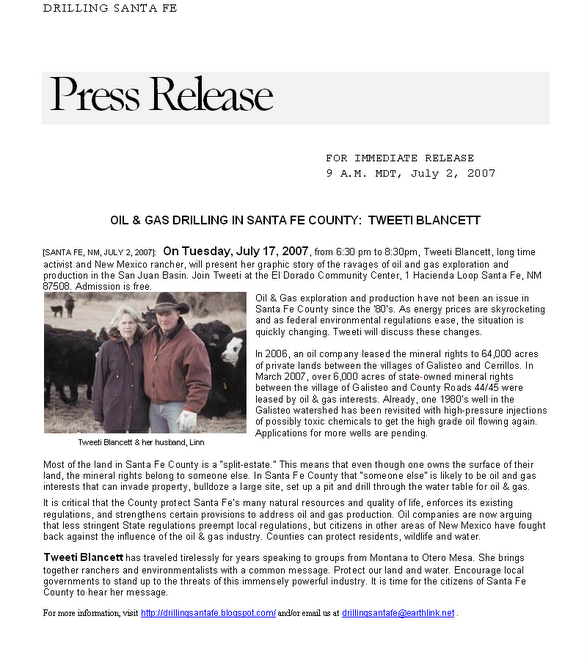
No comments:
Post a Comment